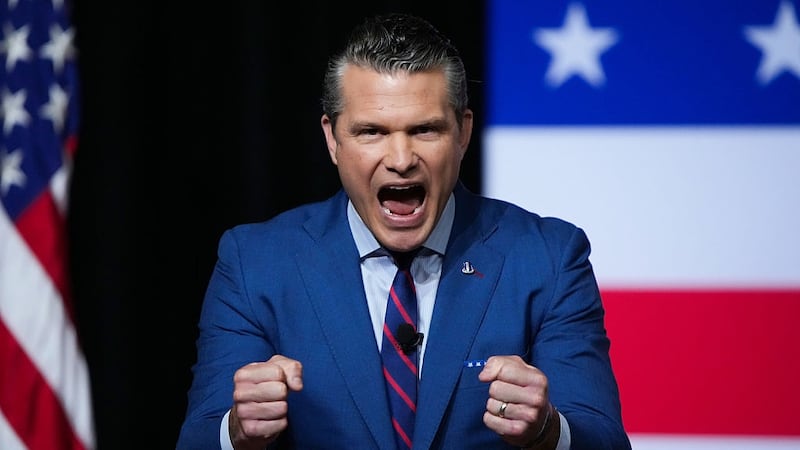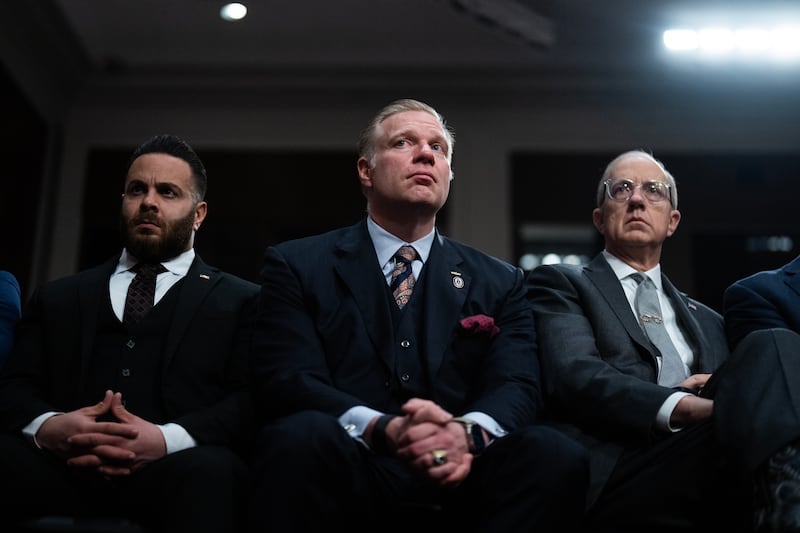Defense Secretary Pete Hegseth’s push to restrict journalists at the Pentagon was guided behind the scenes by his longtime personal lawyer.
Tim Parlatore was instrumental in shaping the sweeping new media restrictions set to take effect this week, according to multiple people familiar with the matter and a draft policy obtained by The Washington Post.
The policy requires credentialed reporters to sign a 21-page agreement acknowledging that any attempt to request information not preapproved for release by the Pentagon constitutes “soliciting or encouraging government employees to break the law.” Reporters who refuse to sign must surrender their credentials and leave the building by Wednesday evening.

Parlatore told the Post that the new guidelines are in no way designed to cover for Hegseth or act as a buffer between him and scrutiny. “It has nothing to do with embarrassing the secretary,” he said. “That’s a talking point that people have raised, but this is purely focused on preventing criminal activity.”
Outlets across the political spectrum—including The Post—have declined to sign, citing concerns over press freedom and the policy’s interpretation of federal law. Pentagon officials anticipate the new rules may face legal challenges once implemented, according to people familiar with internal discussions.
Parlatore, meanwhile, joined Hegseth’s staff in March as a Navy Reserve officer after years of serving as Hegseth’s personal attorney. His dual role— as both a uniformed officer and private lawyer still representing clients—has drawn concern from the Defense Department’s legal offices, where some officials have questioned whether his influence blurs ethical lines.

The 46-year-old has also served as legal counsel for Donald Trump and previously represented Hegseth in a 2017 sexual assault case that nearly derailed the “Secretary of War’s” nomination for defense secretary.
Despite his relatively modest military rank of Navy commander, Parlatore has been described by colleagues as unusually powerful within Hegseth’s front office. He occupies a desk near the defense secretary and reportedly played a central role in shaping Hegseth’s use of polygraph tests to identify internal leakers earlier this year—a move that drew White House scrutiny after a complaint from a senior appointee.
The new restrictions mark another instance of Parlatore’s legal hand guiding sensitive Pentagon decisions. He has also interfaced with the Defense Department’s inspector general in an ongoing review of how Hegseth’s team handled classified information in the so-called “Signalgate” affair, after material from a classified email appeared in an unclassified chat app.
Parlatore defended the new media policy as necessary for protecting information security, insisting it followed existing conflict-of-interest rules.
“One of the tremendous benefits of being a reservist is the ability to bring in outside experience,” he told the Post, arguing that his background as a criminal defense attorney offers the department “expertise no active-duty lawyer could provide.”
Parlatore has previously represented figures ranging from New York Police Commissioner Bernard Kerik to Navy SEAL Edward Gallagher, whose controversial acquittal drew national attention.
Now, his latest work—enforcing one of the Pentagon’s most restrictive media policies in decades—places him once again at the center of a national firestorm. At least 30 news organizations declined to sign the guidelines. This includes Reuters, the Associated Press, Bloomberg News, The New York Times, The Wall Street Journal, The Washington Post, CNN, CBS, NBC, ABC, NPR, Axios, Politico, The Guardian, The Atlantic, The Hill, Newsmax, Breaking Defense and Task & Purpose. Even Hegseth’s former employer, Fox News, joined the dissenters.
Chief Pentagon spokesperson Sean Parnell said in a statement on Monday: “The policy does not ask for them to agree, just to acknowledge that they understand what our policy is. This has caused reporters to have a full blown meltdown, crying victim online. We stand by our policy because it’s what’s best for our troops and the national security of this country.”
Asked about the new rules on Tuesday, President Donald Trump said that Pentagon chief Pete Hegseth “finds the press to be very disruptive in terms of world peace and maybe security for our nation.”
Hegseth called the requirements “common sense,” adding that “we’re trying to make sure national security is respected.”
The DOD referred the Beast to the Department of Defense, which did not immediately provide a response. Parlatore has also been contacted for comment.
The post Hegseth Fixer’s Secret Role in Pentagon Crackdown Plot Exposed appeared first on The Daily Beast.




